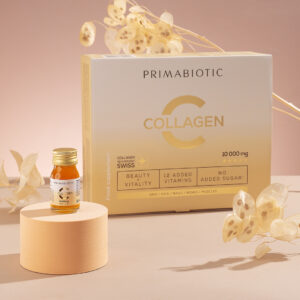
Supplements and vitamins for Acne
Acne affects many people, both teenagers and adults. Its causes range from hormonal problems to improper diet. In addition to proper skin care, supplementation plays an important role in the fight against acne. In the following article, we examine what supplements and vitamins can help improve acne skin.
Supplements for acne
If you’re wondering what acne supplements can be effective, it’s worth looking at those that support skin health from the inside out. Key ingredients that can help reduce pimples and blemishes include zinc, omega-3 acids, and probiotics.
Zinc is one of the most popular supplements used in the fight against acne. Its anti-inflammatory and antibacterial properties can help reduce skin inflammation. Omega-3, or fatty acids, also have anti-inflammatory effects, which is extremely important for acne-prone skin. It’s also worth considering probiotic supplementation to support the gut flora, which can affect skin conditions.
Vitamins for acne
Along with supplements, vitamins can help reduce acne. The most essential ones for skin health are vitamins A, C, and E. Each plays a different role, but they all improve the condition of the skin.
- Vitamin A – helps regulate sebum production, reducing the risk of clogged pores and breakouts.
- Vitamin E – is a potent antioxidant that shields the skin from free radicals and supports its regeneration.
- Vitamin C – not only boosts the immune system but also brightens the skin, helping to fade acne marks.
Zinc for acne
Zinc plays a key role in the treatment of acne. It is a mineral that affects sebum production and has anti inflammatory effects, making it one of the most commonly recommended supplements for acne. Zinc also promotes skin regeneration and reduces the growth of bacteria, which is one of the leading causes of pimples.
Regular zinc supplementation can produce visible results, such as reduced inflammation and fewer pimples. However, it is important not to exceed the recommended dosage, as excess zinc can lead to imbalances of other minerals in the body.
Does vitamin C help with acne?
Vitamin C is another key component in the fight against acne. While it’s not traditionally considered an acne-specific vitamin, its anti-inflammatory and wound-healing properties can greatly enhance skin appearance. It plays a crucial role in collagen production, supporting skin regeneration after breakouts and helping to prevent scarring.
Additionally, vitamin C has a brightening effect, which can help fade post-acne discolouration. Using it both as a supplement and in skincare products can yield visible benefits.
Omega 3 for acne
Why are omega acids so crucial in fighting acne? These acids make sebaceous gland secretions more fluid and thus do not block the mouth of the glands, preventing the formation of new pimples. In addition, with a deficiency of omega-3 and omega-6 acids, the skin changes its pH, inflammation develops, and blackheads appear.
Omega-3 acids reduce inflammation and slow down the production of the hormone responsible for the formation of acne.
In addition to supporting the fight against acne, omega-6 acids moisturize facial skin very well, so they will also work well for atopic dermatitis and psoriasis. Omega-6s also maintain skin elasticity and firmness.
Check out the other articles:
